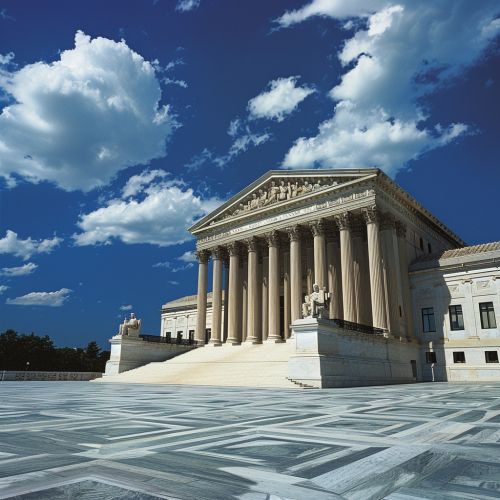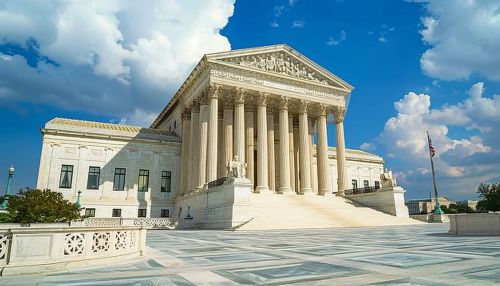John G. Roberts Jr.
Early Life and Education
John Glover Roberts Jr. was born on January 27, 1955, in Buffalo, New York. He is the son of Rosemary (née Podrasky) and John Glover "Jack" Roberts Sr., a plant manager with Bethlehem Steel. Roberts grew up in Long Beach, Indiana, and attended La Lumiere School, a private Roman Catholic boarding school in La Porte, Indiana. He graduated as class valedictorian in 1973.
Roberts went on to study at Harvard College, where he majored in history. He graduated summa cum laude with a Bachelor of Arts in 1976. Following his undergraduate studies, Roberts attended Harvard Law School, where he served as managing editor of the Harvard Law Review. He graduated magna cum laude with a Juris Doctor in 1979.
Early Legal Career
After graduating from Harvard Law School, Roberts clerked for Judge Henry Friendly of the United States Court of Appeals for the Second Circuit from 1979 to 1980. He then clerked for Associate Justice William Rehnquist of the Supreme Court of the United States from 1980 to 1981. These clerkships provided Roberts with significant exposure to appellate litigation and the workings of the highest court in the United States.
Following his clerkships, Roberts joined the law firm of Hogan & Hartson (now Hogan Lovells) in Washington, D.C., where he specialized in appellate litigation. In 1981, he left private practice to serve in the United States Department of Justice as a Special Assistant to the Attorney General. In 1982, he was appointed Associate Counsel to President Ronald Reagan, a position he held until 1986.
Government Service and Private Practice
In 1989, Roberts returned to public service as Principal Deputy Solicitor General under President George H. W. Bush. In this role, he argued 39 cases before the Supreme Court, establishing a reputation as a skilled and effective advocate. His notable cases included Lujan v. Defenders of Wildlife and Metro Broadcasting, Inc. v. FCC.
Roberts returned to Hogan & Hartson in 1993, where he continued to focus on appellate litigation. During this period, he argued several high-profile cases before the Supreme Court, including United States v. Microsoft Corp. and Alaska v. EPA. His work in private practice further solidified his reputation as one of the leading appellate lawyers in the country.
Judicial Career
In 2003, President George W. Bush nominated Roberts to the United States Court of Appeals for the District of Columbia Circuit. He was confirmed by the Senate and took his seat on the court in June 2003. During his tenure on the D.C. Circuit, Roberts authored several significant opinions, including Hamdan v. Rumsfeld, which addressed the legality of military commissions for detainees at Guantanamo Bay.
Supreme Court Nomination
In July 2005, President George W. Bush nominated Roberts to the Supreme Court to replace retiring Associate Justice Sandra Day O'Connor. However, following the death of Chief Justice William Rehnquist in September 2005, Bush withdrew Roberts' nomination for O'Connor's seat and instead nominated him to be Chief Justice of the United States. The Senate confirmed Roberts as Chief Justice on September 29, 2005, by a vote of 78-22.
Tenure as Chief Justice
As Chief Justice, Roberts has presided over a number of landmark cases and has played a key role in shaping the direction of the Supreme Court. His judicial philosophy is often described as conservative, but he has also demonstrated a willingness to uphold precedent and seek consensus among the justices.
Notable Opinions
Roberts has authored several significant majority opinions during his tenure as Chief Justice. In National Federation of Independent Business v. Sebelius (2012), he wrote the opinion upholding the constitutionality of the Affordable Care Act's individual mandate as a tax. This decision was seen as a pivotal moment in his career, showcasing his ability to navigate complex legal and political landscapes.
In Shelby County v. Holder (2013), Roberts wrote the majority opinion striking down key provisions of the Voting Rights Act of 1965, arguing that the coverage formula used to determine which jurisdictions required federal oversight was outdated and unconstitutional.
Roberts also authored the majority opinion in King v. Burwell (2015), which upheld the provision of tax credits to individuals purchasing health insurance through federal exchanges under the Affordable Care Act. This decision further solidified his role as a central figure in the Court's approach to healthcare legislation.
Judicial Philosophy
Roberts' judicial philosophy is characterized by a commitment to judicial restraint and a respect for precedent, known as stare decisis. He has often emphasized the importance of the Court's institutional integrity and has sought to avoid decisions that could be perceived as overly partisan. Roberts has also shown a preference for narrow rulings that address only the specific issues at hand, rather than broad, sweeping decisions.
Personal Life
Roberts married Jane Sullivan in 1996. Jane is an attorney and a trustee at College of the Holy Cross, her alma mater. The couple has two children, Josephine and Jack. They are members of the Church of the Little Flower in Bethesda, Maryland.
Roberts is known for his interest in history and enjoys reading historical biographies. He is also an avid fan of the Washington Nationals baseball team.
Legacy and Impact
As Chief Justice, Roberts has played a crucial role in shaping the direction of the Supreme Court and the interpretation of the United States Constitution. His tenure has been marked by a balance between conservative principles and a pragmatic approach to the law. Roberts' decisions have had a profound impact on a wide range of issues, including healthcare, voting rights, and the limits of executive power.
Roberts' legacy will likely be defined by his efforts to maintain the Court's independence and his ability to navigate the complex interplay between law and politics. His commitment to judicial restraint and respect for precedent has helped to preserve the stability and credibility of the Supreme Court.
See Also
- Supreme Court of the United States
- Judicial restraint
- Stare decisis
- Affordable Care Act
- Voting Rights Act of 1965


References
- To be added.
